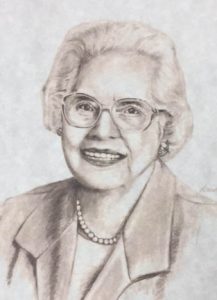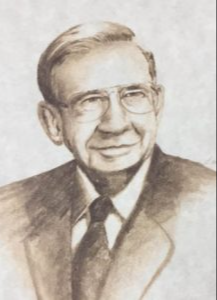About
Mission
The mission of the Galloway School, the premier private school in academic excellence and character development in the Bay Area, is to maximize students’ intellectual abilities and personal talents as they develop into passionate, dedicated global citizens through a nurturing Christian environment, distinguished by a challenging curriculum and innovative resources ignited by exceptional instruction and supportive families.
Beliefs
We believe in the constant pursuit of excellence in education.
We believe that a Christian based education, in a culturally diverse and mutually respectful setting, strengthens our community.
We believe that education empowers children to maximize their talents and abilities to achieve individual excellence.
We believe that global leaders of tomorrow are forged today.
We believe that passion and dedication lead to success.
We believe that transparency enables education to move beyond school walls.
We believe that family involvement is vital to a child’s academic, social and emotional growth.
Pillars of Excellence
Self Reliance
At Galloway, we develop self-reliant students capable of completing assigned tasks in an independent, resourceful and self-sufficient manner. We believe students who are independent and self-reliant typically survive and function better in society than those who are dependent on others for happiness and sustainability. Taking control of basic tasks and life skills will not only help our students stay in control of their own lives, but will ultimately contribute to making them a happier individual.
Compassion & Empathy
Galloway students learn about showing compassion and empathy during their earliest years in school. Compassion is an emotional response and attitude towards others that is deeply empathetic. It enables us to connect to human suffering with care and understanding, acting in ways that brings comfort to those around us. Compassion causes us to remain charitable, even if others behave negatively. Research shows that compassion plays a key role in helping children develop into engaged, caring, and optimistic adults. A Galloway student learns compassion and empathy through…
Volunteering
Service Learning Projects
Performing random acts of kindness
Listening to stories involving compassion
Developing an awareness of other points of view
Studying historical figures who were champions for causes that helped the world to be a better place
Discussions of bullying and the adverse effects of those individuals on the receiving end.
Galloway campus life is immersed in opportunities to practice compassion and empathy throughout each day. These opportunities to teach and reinforce compassion will, over time, result in a student becoming a happy, caring individual with a moral compass that directs them to do the right thing —because it’s the right thing to do.
Critical Thinking & Problem Solving
Today’s citizens must be active critical thinkers if they are to compare evidence, evaluate competing claims, and make sensible decisions. A Galloway student is taught to think critically in varied situations using multiple strategies to achieve optimum solutions to problems. We teach our students to…
Reason effectively using various types of reasoning (inductive, deductive, etc.) as appropriate to the situation
Use systems thinking to analyze how parts of a whole interact with each other to produce overall outcomes in complex systems
Make judgments and decisions analyzing and evaluating evidence, making arguments, claims and defending beliefs, analyzing and evaluating major alternative points of view, synthesizing and making connections between information and arguments, and interpreting information and drawing conclusions based on best analysis, reflecting critically on learning experiences.
Solve problems in conventional and innovative ways. We want our students to be able to identify various points of view that lead to better solutions.
Creativity & Innovation
In today’s world of global competition and task automation, innovative capacity and a creative spirit are fast becoming requirements for personal and professional success. If students leave school without knowing how to continuously create and innovate, they will be under-prepared for the challenges of society and the workforce. Galloway students are taught to create and invent when they…
Use a wide range of idea creation techniques (such as brainstorming)
Create new and worthwhile ideas (both incremental and radical concepts)
Elaborate, refine, analyze, and evaluate original ideas to improve and maximize creative efforts
Develop, implement, and communicate new ideas to others effectively
Are open and responsive to new and diverse perspectives
incorporate group input and feedback into the work
Demonstrate originality and inventiveness in work and understanding the real world limits to adopting new ideas
View failure as an opportunity to learn; understand that creativity and innovation are part of a long-term, cyclical process of small successes and frequent mistakes
Act on creative ideas to make a tangible and useful contribution to the field in which the innovation will occur
Collaboration & Communication
Collaboration has been accepted as a skill that’s essential to achieve meaningful and effective results. In the past decade, however, it has become increasingly clear that collaboration is not only important but necessary for students and employees, due to globalization and the rise of technology. Galloway students develop collaboration and communications skills when they…
Work effectively and respectfully with diverse teams
Exercise flexibility and willingness to be helpful in making necessary compromises to accomplish a common goal
Assume shared responsibility for collaborative work, and value the individual contributions made by each team member
Articulate thoughts and ideas effectively using oral, written, and nonverbal communication skills in a variety of forms and contexts
Listen effectively to decipher meaning, including knowledge, values, attitudes, and intentions
Use communication for a range of purposes (e.g. to inform, instruct, motivate, and persuade)
Use multiple media and technologies, and know how to assess impact and effectiveness
Communicate effectively in diverse environments (including multilingual and multicultural)
Civility
The foundational virtue of civility is behavior that recognizes the humanity of others, allowing us to live peacefully together in neighborhoods and communities. The psychological elements of civility include awareness, self-control, empathy, and respect. If we believe that all human beings “are created equal” and have worth, then civility is an obligation to act in ways that honor that belief. It requires us to treat others with decency, regardless of our differences. It demands restraint and an ability to put the interests of the common good above self-interests. Civility is, at its core, the glue that holds a society together.
Civility requires respectful engagement: a willingness to consider other views and place them in the framework of history, philosophy, and life experiences. Galloway students learn civility through…
Using good manners
Treating others the way they want to be treated
Discussing and practicing good character virtues
Being open to different types of people and ideas
Apologizing when they have wronged others
Resolving conflicts peacefully and respectfully
Listening to another point of view that differs from their own
Sharing
Taking turns
Following rules and procedures
Exercising self-restraint for using offensive language or acting inappropriately when becoming angry, hurt or disappointed
Debating issues with tolerance for differing views and respecting ground rules


